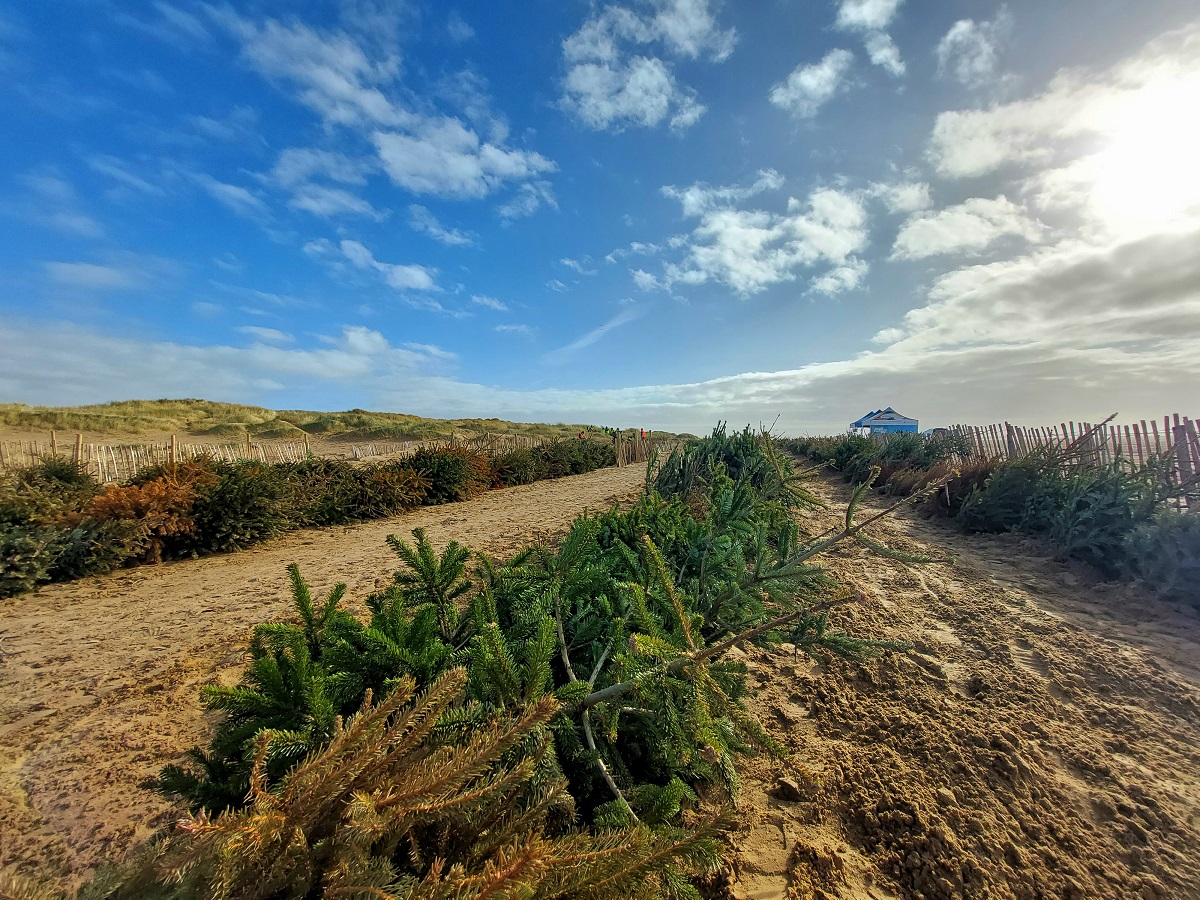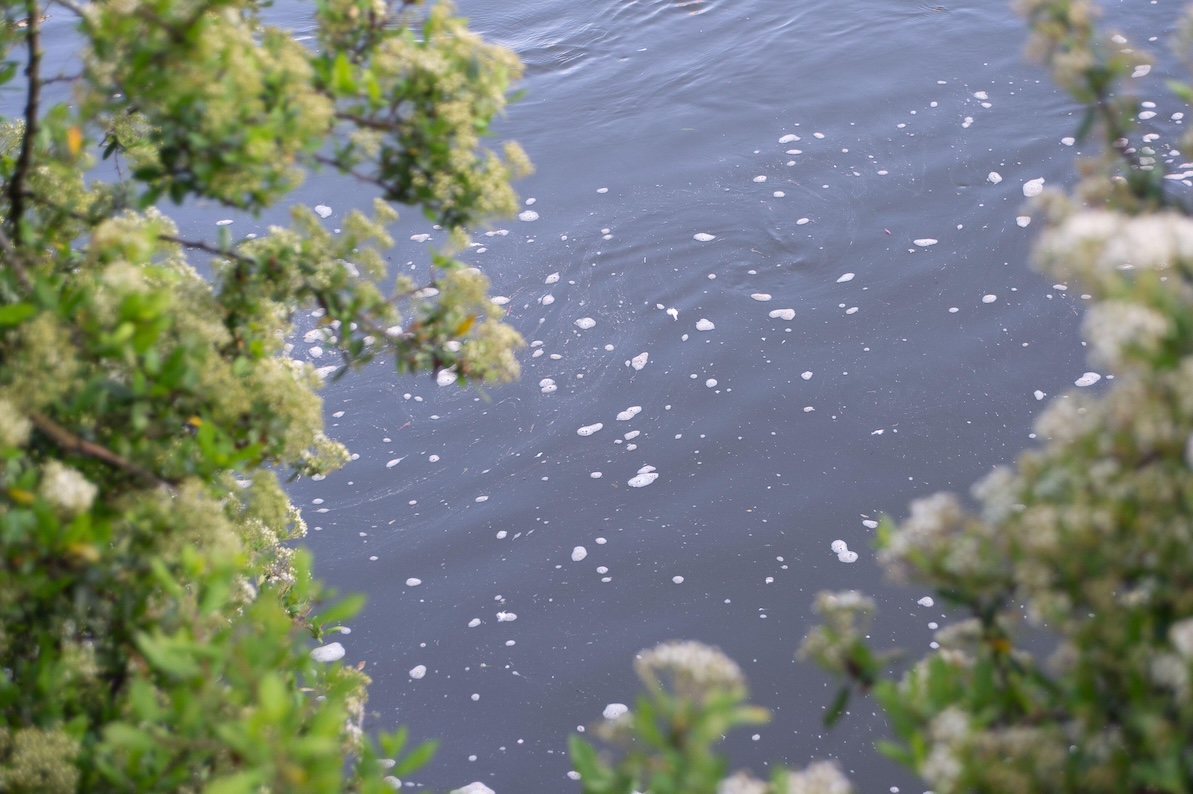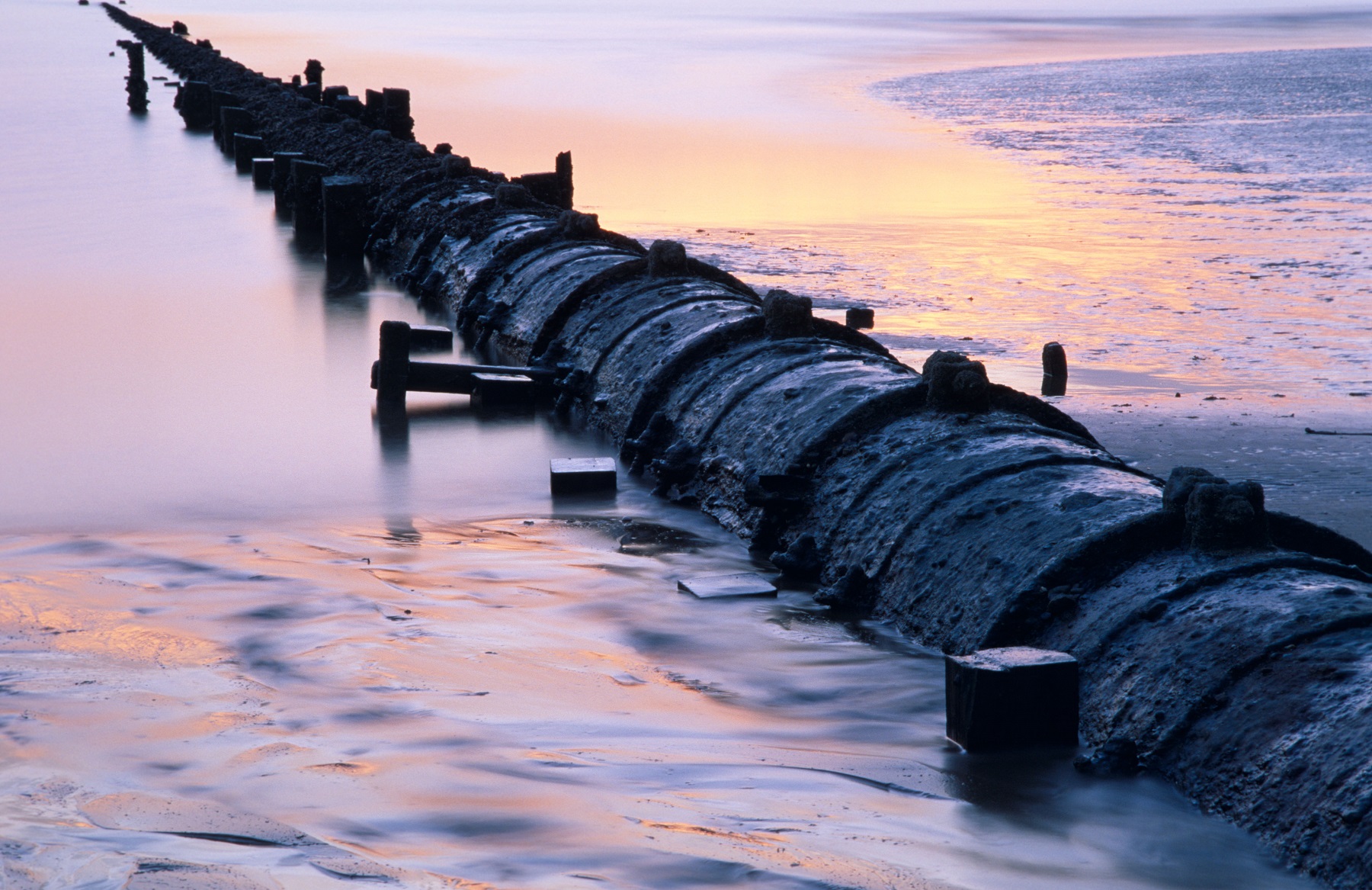Get in the sea: Boss of United Utilities urged to reconsider position as a Blackpool ambassador
A warning at Blackpool North is expected to advise against swimming for the remainder of the 2024 bathing season. So why is the boss of water firm United Utilities in a position as an ambassador for the town?
The boss of water firm United Utilities has been urged to reconsider her position as a Blackpool ambassador - as millions of people visiting the resort this year are told to stay clear of the dangerously dirty sea because of sewage spills.
Louise Beardmore’s appointment as ambassador of Meet Blackpool, set up to entice organisations to host conferences in the seaside town, has been branded “inappropriate” by Dr Barbara Kneale from the campaign group Fylde Coast Against Sewage.
Kneale said: “A big question has to be asked: Why is Louise Beardmore actually an ambassador for Blackpool? I would say making the sea unswimmable isn’t giving Blackpool a good name.”
The water quality at Blackpool North, which is opposite the Tower and sits between the Central and North piers, is one of four stretches of the town’s coastline to be designated as bathing waters. It was rated ‘good’ just five years ago, when dolphins could sometimes be seen leaping from beneath the waves.
But it is now so poor that a sign has been posted by the Comedy Carpet to warn beachgoers to keep out of the Irish Sea, which is now teeming with bacteria that can make people ill.
“Swimming and paddling is not advised today,” the sign says.
“Low water quality is predicted. This prediction is expected to remain for the 2024 bathing season.”
While there are several reasons why the water quality has deteriorated, officials at the Environment Agency believe the most significant impact comes from coastal storm sewage discharges after rainfall.
Since Beardmore was announced as a Meet Blackpool ambassador in March, sewage has been pumped into the sea at Blackpool North at least four times, according to alerts from the Safer Seas and Rivers Service. There have also been two “pollution risk” alerts, on May 23 and 24.
United Utilities also released more untreated sewage into rivers and seas in England than any other water firm last year, statistics showed.
The company, which covers the north west, pumped out raw sewage into English waters 97,537 times over a period of more than 650,000 hours in 2023, figures revealed.
Kneale, who was born in Blackpool and lives in Fleetwood, said Beardmore should “absolutely” reconsider her ambassadorial role.
She added: “We are rewarding somebody who is CEO of a company which has ruined our beaches. She should have refused it.”
“We seek influential individuals”
Julie Vincent, head of Meet Blackpool, said the organisation was established to “enhance investment in the Blackpool Conference and Exhibition Centre (at the Winter Gardens in the town centre) and drive economic, social and cultural benefits to the region”.
She said: “In selecting ambassadors, we seek influential individuals who can positively represent Blackpool and share their experiences with a wider audience within their field.
“Louise Beardmore, having chosen Blackpool for United Utilities’ major staff conference, experienced firsthand the exceptional service provided.
“Her support aligns with our mission to attract business events to Blackpool, and her ability to communicate these positive experiences makes her an ideal ambassador.”
Beardmore was asked by The Blackpool Lead if she would be willing to swim in the sea to demonstrate her confidence in the safety and cleanliness of the water.
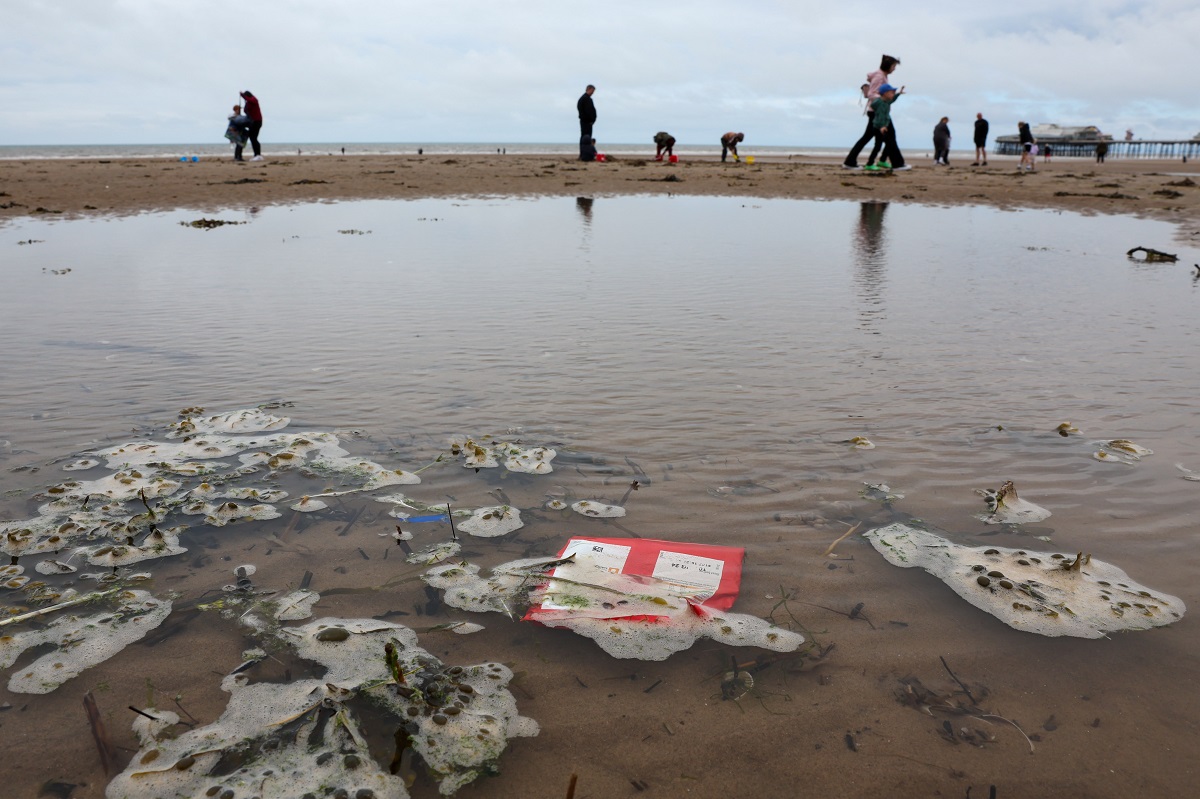
Blackpool North. Credit: The Blackpool Lead
She declined to answer but extolled in a statement United Utilities’ work in the region.
She said “billions of pounds” have been invested in the last 30 years on environment improvements in Blackpool, though she did admit “there is more to do to change the way the wastewater system operates and to meet new environment standards”.
She said: “Our proposed business plan from 2025 has requested over £13 billion to invest in the next five years, the largest investment in water and wastewater infrastructure in the north west in more than a century.”
On her new role, Beardmore said: “Having been born and bred in the north west and lived in this region all my life, I know how important it is to support Blackpool so it can continue to thrive, be a great and inclusive place to live and work, attracting both business and visitors.
“I am absolutely committed to continuing to support its growth, creating jobs and skills and training opportunities in Blackpool and the Fylde coast, something which is very close to my heart.”
She added: “Many of my colleagues are rightly proud to both live and work in Blackpool and we’ve always taken the opportunity to support the town through events like Pride and the Jubilee Gardens project.
“We chose Blackpool to hold an event to which all our colleagues were invited last year. We were delighted to support the conference centre, which is excellent, and everyone who attended had nothing but praise for the venue and the staff who looked after us brilliantly.
“For all those reasons, and more, I am proud to be an ambassador for Meet Blackpool and United Utilities is proud to support Blackpool Pride of Place and the Claremont Steering Group.”
Asked why the water quality at Blackpool North has been allowed to worsen, Kneale blamed deregulation after Brexit, saying: “If you look at the vote in January, MPs voted to allow sewage to be dumped in the sea.”
292 Conservative MPs voted
A fact check by PA Media found that, while 292 Conservative MPs did not vote “aye” to allow sewage dumping by water firms for the next 15 years, they did vote on updated environmental targets that do “indirectly allow the continuation of sewage disposal - an objective that the Lib Dems have labelled ‘pathetic’”.
Tory party candidate for Blackpool North and Fleetwood, Paul Maynard, who voted “aye” as an MP, a position he held until parliament was dissolved ahead of the general election, said a Labour motion calling for an immediate ban was a “classic example” of the party’s “political games, designed to generate headlines not deliver action”.
He said: “An overnight ban would have achieved nothing other than to make illegal something that is unavoidable with our current infrastructure.
“I supported the government in setting tough but deliverable targets for water companies, sending a clear message they need to clean up their act but giving them a sensible timeframe in which to deliver the investment needed.
“I am very clear that needs to be done without increasing bills for hard-working people in Blackpool North and Fleetwood.
“Labour’s ban would have achieved nothing other than serving to block that investment to the detriment of our communities and coastal waters.”
The Blackpool Lead visited the beach opposite the Tower on Monday. That stretch of sand is sandwiched by sewage discharge pipes at Gynn Square to the north and Manchester Square to the south.
A small sign on the seawall said swimming and paddling was discouraged - with a blue sticker saying the do-not-swim advice is expected to be in place for the rest of the 2024 season.
A seagull lay dead, wrapped in seaweed, while a discarded Sainsbury’s crisp packet sat below the surface of a pool of salt water.
But nobody could be seen paddling in the surf - not even ankle deep - despite the warm June weather.
A council spokesperson said that while there has been a “deterioration in quality” of the water at Blackpool North, which has been officially judged to be ‘poor’, “this is similar in other parts of the country”.
They added: “Despite this, three of Blackpool's beaches have recently been granted Seaside Awards.
“Keep Britain Tidy have rewarded Blackpool South, Blackpool Central and Bispham beaches for their high standards of beach management and overall cleanliness as well as their nearby facilities and water quality.
“Blackpool beaches are visited and enjoyed by millions of people every year. The efforts they make to take away their litter and keep Blackpool tidy is much appreciated and replicated by employees and local community groups.”
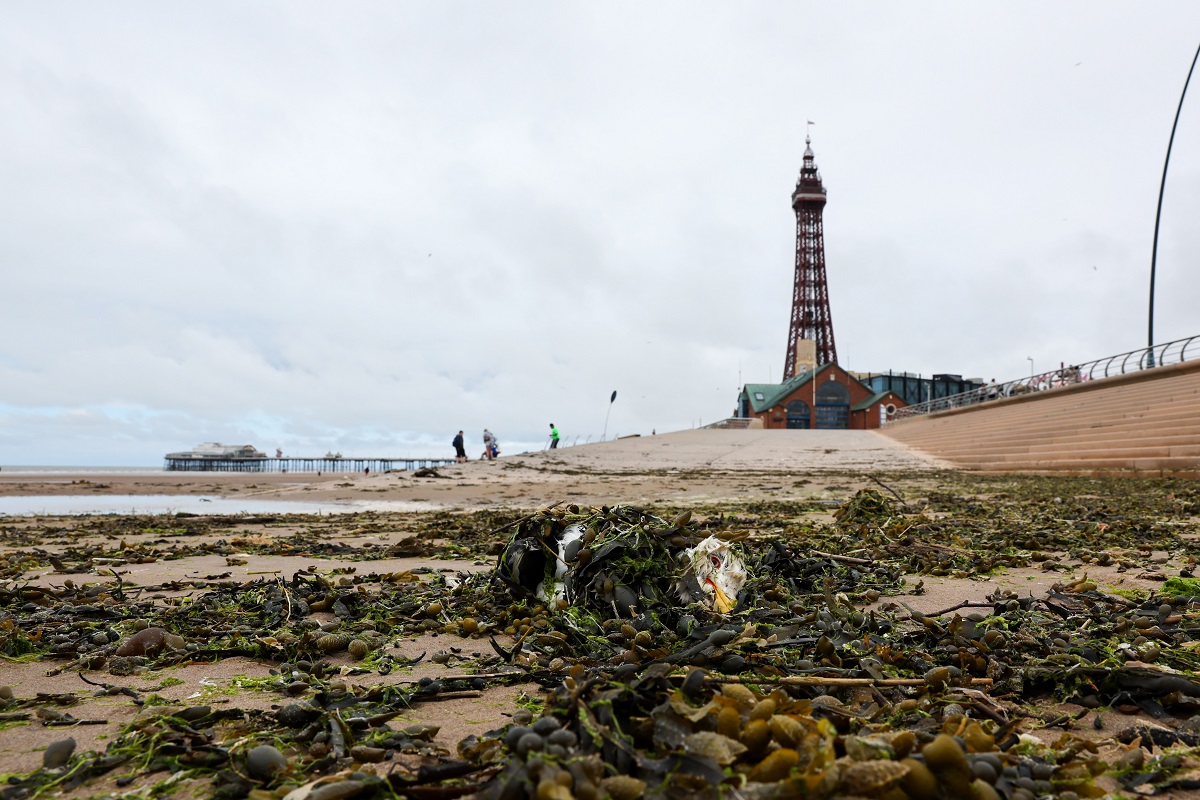
Blackpool North. Credit: The Blackpool Lead
The other stretches of water are Bispham, which is rated ‘good’, Blackpool Central, which is ‘sufficient’, and Blackpool South, also ‘sufficient’.
Each site, which must meet European standards, is checked by the Environment Agency between the start of May and end of September, with 20 samples taken each year.
The ‘poor’ rating for Blackpool North means there “have been high levels of bacteria in the sea, namely E. coli and enteroccus”, Kneale said.
“It’s as a result of United Utilities pumping raw sewage into the sea,” she added.
E. coli originates from faeces, research published by the National Institute for Health and Care Research said, with people swimming in seawater at almost twice the risk of falling ill than those who avoid the sport.
“The specific illnesses linked to seawater exposure are ear and gastrointestinal illnesses,” the study adds, “but the exact or absolute rates of infection are not available.”
Chis Pogson, who became a member of the sea swimming group the Cleveleys Dippers in 2022 and went on to join Fylde Coast Against Sewage, told The Blackpool Lead recently: “A lot of people have stopped dipping due to mistrust in the safety of our waters.
“The Environment Agency only tests the water in what they deem to be the bathing season between May and October.
“But of course wild swimmers go out in all weathers and people paddle, people walk their dogs and people let their children play on the beach all year round. Let’s not forget the water comes onto the sand that we let our children dig in.”
Aside from sewage spills, there are several other known causes of poor water quality, including urban sources, farming and birds, officials have said.
And there have been efforts to make things better, with work still under way.
The Environment Agency has been on farm visits within the Ribble catchment and will work with Natural England to review saltmarsh grazing and the impact on bathing waters.
Sewage infrastructure under North Pier has been improved to fix a leaky toilet facility, believed to be a pipe, although it remains prone to damage from strong waves and water, officials added.
Surface water drains along the promenade have also been investigated, with water samples taken and CCTV cameras used to find the source of a “contaminated drain”.
Other high-profile improvements in recent years include an extended outfall pipe at Anchorsholme and extra storm sewage storage at Fleetwood and central Blackpool.
“It’s not going away”
But Kneale said “the sewage problem isn’t going away” and a “political commitment to the environment and sea” is needed.
“Maybe that will change if we get a change of government. I don’t know. I hope so,” she said.
“Secondly, it’s regulation. Let’s give the Environment Agency (now part of Defra) its teeth back. They haven’t got the power they once had.”
Chris Webb, Labour’s parliamentary candidate for Blackpool South, said he is “hugely alarmed” by “the sewage dumps”.
He told The Blackpool Lead: “The company released raw sewage into open water on the Fylde coast almost 1,500 times in 2023 and as recently as May 28.
“I met with Fylde Coast Against Sewage just last week about this problem and I am being contacted regularly by Blackpool residents who feel rightly passionate about the pollution of our sea. I have shared my concerns and, if elected, I will work closely with Blackpool Council and do what I can to ensure United Utilities puts a stop to it.
“Alongside poor enforcement by the Environment Agency and a lack of funding by government, years of underinvestment by United Utilities in their infrastructure is directly responsible for pollution on our coastline.”
Webb said Beardmore is paid £875,000 a year in salary and bonuses and directly owns 0.007% of its shares, worth £492,390.
“Meanwhile, United Utilities, which serves seven million of us customers across the region, is expected to increase their water bills by 38% over the next five years to £666,” he said.
Webb said a Labour government would place polluting water firms in special measures, which could see bonuses blocked and bosses charged with crimes; introduce severe and automatic fines; and end self-monitoring so “companies can no longer cover up illegal sewage dumping”.
He added: “Blackpool’s beaches should be a huge source of pride for residents, who should be able to reap all the benefits of our greatest natural asset. Their pollution not only threatens our health but our wellbeing and sense of local pride.”
Blackpool Council said it is working with its “partners”, including United Utilities and the Environment Agency, to “establish the details of sources of pollution” and on an “action plan to ensure Blackpool and the north west coast have the best possible bathing water quality”.
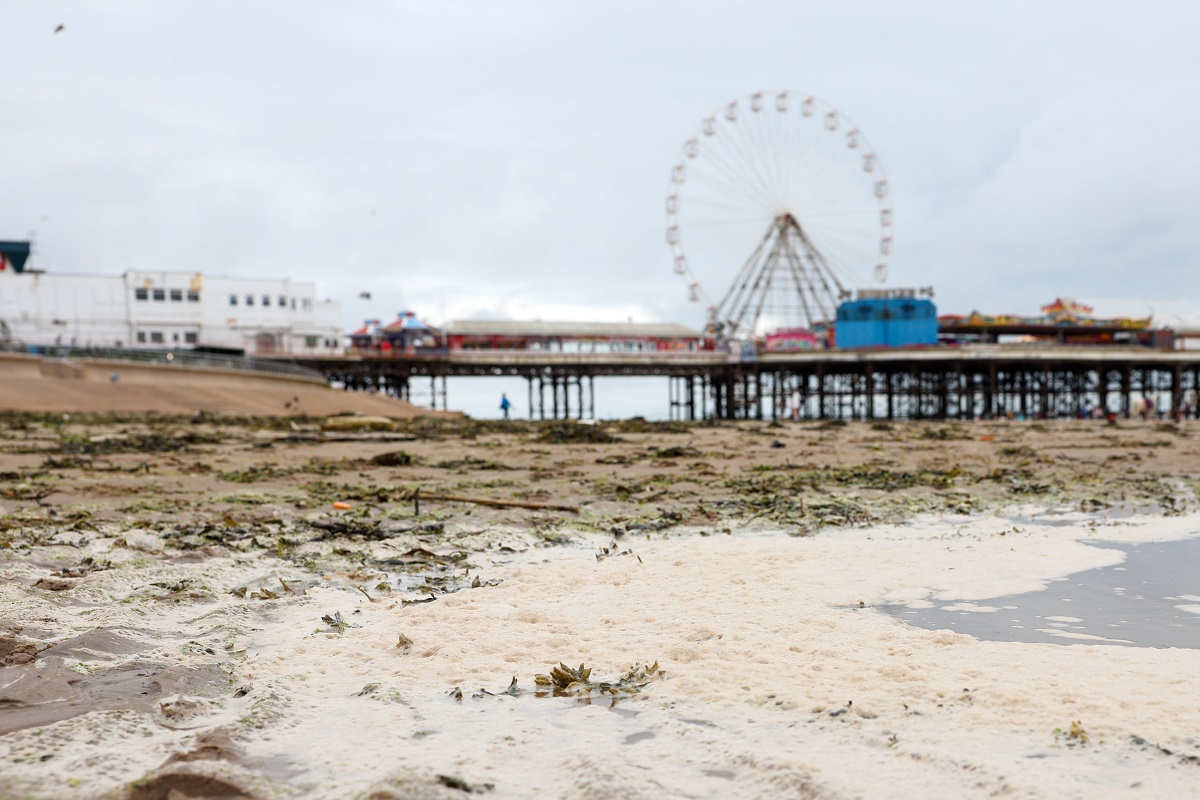
Blackpool North. Credit: The Blackpool Lead
Its spokesperson said: “Blackpool Council is the first council in the north west to develop an ocean recovery plan, which will not only address water quality but the wider environment and economic actions to protect our biggest asset.”
They admitted the authority has “limited resources” but said dog wardens and enforcement officers can challenge people for taking their dogs on the beach - between the North and South piers - from May 1 to September 30.
“When it is feasible, the beach patrol team direct dog owners to the areas where they can walk their dogs unrestricted,” the spokesperson said.
They added: “Blackpool’s main beach area receives daily cleaning from May to October. Outside of this period, daily inspections take place and any large tidal debris is removed when necessary.
“Blackpool has more than 1,000 litter bins, including 250 large-capacity bins on the Promenade alone. They are emptied daily under normal conditions and collections are increased whenever there is good weather and high visitor numbers.”
But for now, though, how can people know if the sea is clean enough to cool down in?
“People can check before they get to Blackpool using the Environment Agency’s Swimfo site, which contains up-to-date information on water quality,” the town hall spokesperson said.
“The council website has a live link to this data. In line with national guidelines, we also have advisory notices at main access points to the beach.”
You can see the previous newsletter we sent to our subscribers here
The Blackpool Lead is now on Substack.
Become a Member, and get our most groundbreaking content first. Become a Founder, and join the newsroom’s internal conversation - meet the writers, the editors and more.


